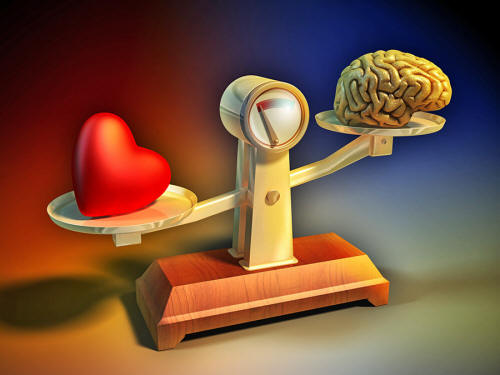|
from Collective-Evolution Website
We've come to understand it as a tool for helping us to avoid conflict, to make better decisions, and to judge character, but,
Research has long suggested that the mind knows much more than it's aware of.
For instance, even if we forget we have been hurt, the body reminds us. But a new study suggests we can, in fact, tap into this knowledge and train it to work for us. And this is exactly why the US military is getting involved.
The perfect soldier? Is it possible?
Joseph Cohn, a program officer for the Defense Advanced Research Program Agency (DARPA), has been working toward that goal since 2009, when he won funding to pinpoint a new neural signature of gut feelings.
Cohn, a Navy captain with a neuroscience PhD, was intrigued by a sergeant's "sixth sense" so honed that everyone wanted him on their patrol.
Cohn was also inspired by the work of psychologist Gary Klein, whom the Army funded to study how experienced firefighters made snap judgments during massive fires that typically trigger paralyzing fear.
Klein discovered commanders usually considered just one option.
Firefighters typically think,
He called this "pattern matching."
Klein explained that, along with pattern-matching machinery having the ability to connect a solution to a problem, it also can find unlikely sensory mismatches in order to trigger our intuition that something is wrong.
Cohn ultimately used these inspirations to form a question that would steer his research:
Cohn funded a team of University of Oregon neuroscientists to find signals in the brain that began in the visual vortex, skipped the rational areas of the brain, and went directly to the emotional point.
The researchers showed volunteers 150 incomplete pictures of objects like chairs with enough pieces missing that conscious recognition would be impossible.
They also showed 50 decoy pictures of scrambled random pixels, asking them to determine, as the image scrolled by two per second, which one contained an object.
And this proved correct.
The team found that 65% of the time, the participants correctly guessed there was an object in the fragments, and 14% of the time, they incorrectly guessed there was an object in decoys. And neural signatures predicted correct guesses.
By 2011, Cohn, who was then at the Office of Naval Research, was granted $3.85 million for a project to train intuition.
He chose Northwestern neuroscientist Paul Reber to lead the project. Reber has studied the result of unconscious visual expertise on the brain - like reaction time speeding up when presented a visual cue because we've unconsciously learned and therefore are anticipating a pattern.
According to Reber, intuition isn't always correct. This is because connections between a group of neurons in the brain create an experience, so when you see a group cues together, the unconscious part of the brain uses them to intuit the future.
Your intuition will only be accurate, however, if the entire experience signifies reality.
Such drills are now being designed by Reber and Charles River Associates, a firm that designs realistic "virtual" spaces used to train marines.
The team has already shown they can create flashes of intuition by showing subjects different pieces of terrain. The participants were asked to guess which ones share constellations of features too faint to observe with the conscious mind.
Now, the team wants to add more complex and realistic scenarios.
Such findings could give soldiers, for instance, the ability to better understand when they should adhere to, or ignore, their gut feelings.
This is one area within the large umbrella of consciousness research...
|


